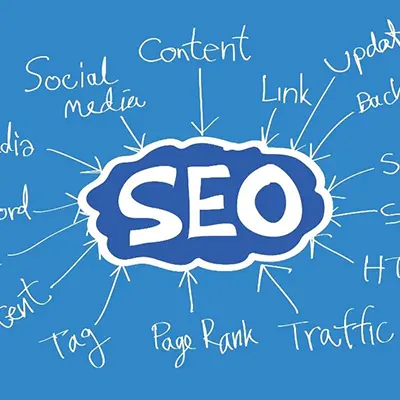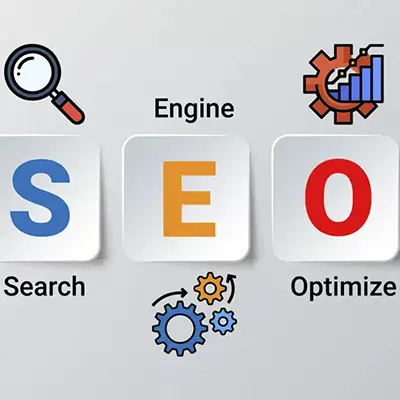SEO for Beginners: Everything You Need to Know to Rank Your Website
SEO for beginners is a key concept for anyone looking to improve the visibility of their website on Google. If you have a page and want to attract more visitors, it’s essential to understand the optimization strategies that can help you rank better in search engines.
SEO (Search Engine Optimization) is the process of optimizing a website to appear among the top results when users search for information related to your business. A good ranking on Google not only increases traffic but also boosts your brand’s credibility and enhances conversion opportunities.
In this SEO for beginners guide, we’ll explain everything you need to know to optimize your website effectively and achieve better results in 2024.
1. What Is SEO and Why Is It Important?
SEO for beginners is the starting point for any business or content creator looking to stand out online. It involves a set of techniques that help a website improve its visibility in search engines without relying on paid ads.
Key benefits of SEO include:
- Increased visibility: Your website will appear among the top results on Google.
- More organic traffic: You’ll attract visitors without needing paid advertising.
- Credibility and trust: Users trust websites that rank well.
- Better user experience: An SEO-optimized site is fast and easy to navigate.

2. How Search Engines Work
Search engines, like Google, use algorithms to analyze and rank millions of web pages. Their goal is to present the most relevant and useful results for every search query.
This process is divided into three main stages:
- Crawling: Search engine bots scan the web for new pages and updated content.
- Indexing: The collected information is stored in the search engine’s database.
- Ranking: Google determines which pages are most relevant to each search and displays them in the results.
To improve your site’s ranking, you must make it easy for bots to crawl and index your website.

3. Key SEO Factors
To rank your website effectively, you need to understand the factors that influence SEO. These can be divided into two main categories:
3.1 On-Page SEO: Optimizing Inside Your Website
On-Page SEO includes all improvements you can make within your own website. Key aspects include:
- Keyword usage: Research the most relevant keywords for your business and include them in titles, descriptions, URLs, and content.
- Optimized titles and meta descriptions: These elements help improve click-through rates (CTR) in search results.
- Content structure: Use headings (H1, H2, H3) to organize your text clearly and make it easier to read.
- Optimized images: Use lightweight formats and ALT tags to improve accessibility and load speed.
- Page speed: A fast-loading site improves both user experience and your Google ranking.
- Responsive design: Ensure your website looks good on mobile devices.

3.2 Off-Page SEO: External Strategies to Boost Authority
Off-Page SEO refers to all actions taken outside of your website to improve its reputation and authority. Effective techniques include:
- Link building: Earning quality backlinks from other websites increases your authority in search engines.
- Social media presence: Sharing content on social networks can boost traffic and generate mentions of your site.
- Collaborations and guest blogging: Writing articles for other blogs helps you gain visibility and high-quality backlinks.
4. The Importance of Keywords in SEO
Keywords are the terms or phrases users type into Google when searching for information. Identifying the right keywords and using them strategically in your content is essential for improving your website’s ranking.
There are different types of keywords:
- Short-tail keywords: Broad terms with high search volume and high competition (e.g., “shoes”).
- Long-tail keywords: More specific phrases with lower competition but higher purchase intent (e.g., “running shoes for men”).
To find the best keywords for your site, you can use tools like Google Keyword Planner, Ahrefs, or SEMrush.

5. Technical SEO: The Foundation of a Well-Optimized Website
Technical SEO focuses on improving your website’s structure and configuration to help Google crawl and index it more easily. Key elements include:
- Using HTTPS: An SSL certificate enhances site security and user trust.
- Optimizing the robots.txt file: Controls which pages Google bots can crawl.
- XML sitemap: Helps search engines understand your site structure.
- Fixing 404 errors: Broken links hurt user experience and SEO performance.
- Avoiding duplicate content: Can confuse search engines and negatively affect your ranking.

6. Measuring and Analyzing SEO Performance
To determine if your SEO strategy is working, it’s important to measure and analyze your results. Some useful tools include:
- Google Analytics: Analyzes traffic and user behavior on your website.
- Google Search Console: Provides data about your site’s performance in search results.
- Ahrefs and SEMrush: Advanced tools to analyze keywords, backlinks, and competitors.
Analyzing this data will help you make informed decisions and continuously improve your SEO strategy.


 info@digitalnexustec.com
info@digitalnexustec.com +51 979 363 455
+51 979 363 455



